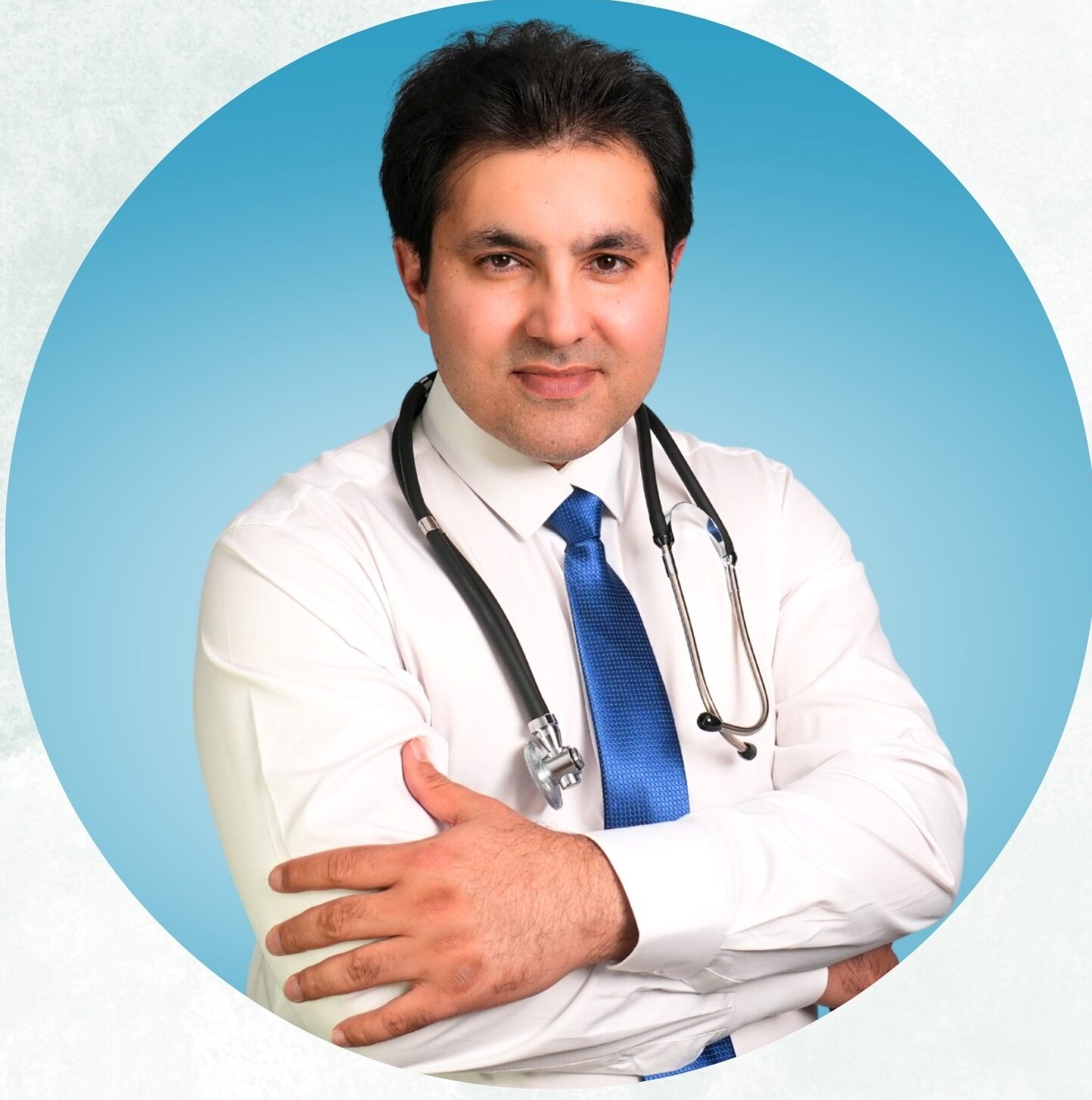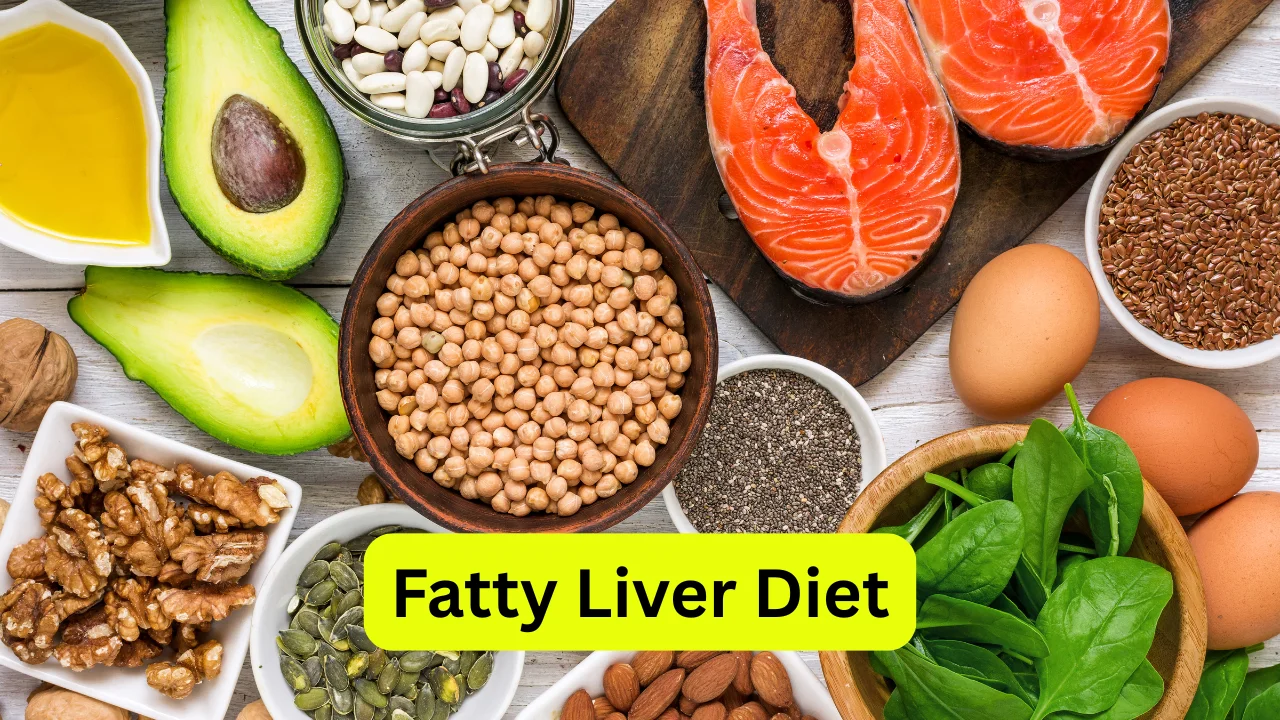Fatty Liver Diet: A Detailed Guide
Fatty liver disease is becoming more common today, often linked with lifestyle choices, poor diet, and lack of activity. If you have been told you have fatty liver or you want to prevent it, the first step is understanding what to eat and what to avoid. A well-balanced fatty liver diet can help reduce fat buildup in the liver, improve your energy, and even reverse the damage over time. In this guide, we will cover everything from symptoms and causes to diet charts, recipes, and lifestyle changes.
Understanding Fatty Liver Disease
What is fatty liver
Fatty liver means fat builds up in your liver cells. This condition may be simple steatosis or more serious when inflammation occurs. Non-alcoholic fatty liver (NAFLD) is linked with obesity, insulin resistance, and poor diet. Alcoholic fatty liver happens when excessive drinking damages liver function.
Common fatty liver symptoms
In the early stages, you may not feel anything. Some people notice tiredness, pain in the upper right abdomen, or weight changes. If ignored, symptoms like yellow skin, swelling, or confusion can appear later.
Causes of fatty liver
The most common causes include obesity, high cholesterol, diabetes, rapid weight gain, and heavy alcohol use. Sedentary lifestyle and poor food choices also increase the risk. Sometimes, it is linked with genetics or medications.
Grades of fatty liver
Doctors classify fatty liver into different stages. Grade 1 fatty liver is mild and reversible. Grade 2 shows moderate fat buildup with early inflammation. Grade 3 is severe and can lead to fibrosis or cirrhosis.
Why treatment is important
Ignoring fatty liver can cause long-term damage, including liver cancer or complete failure. With the right fatty liver diet plan and exercise, you can manage or even reverse the disease.
Fatty Liver Diet Basics
Principles of fatty liver diet
The goal is to reduce liver fat, improve metabolism, and support liver cells. Eating balanced meals with lean proteins, whole grains, vegetables, and healthy fats is key. Avoid sugar, fried foods, and alcohol.
Role of fatty liver food list
Having a clear fatty liver foods to eat list helps you plan meals. It keeps you consistent and prevents confusion. Fresh fruits, vegetables, lean meat, whole grains, and unsweetened drinks are usually safe.
Why foods to avoid matter
Sugar, refined carbs, alcohol, fried snacks, and processed foods worsen liver fat. Avoiding them reduces stress on your liver and supports recovery.
Link between fatty liver and cholesterol
Many patients have high cholesterol or triglycerides. A fatty liver and cholesterol diet helps lower both and reduces heart risks. It combines low saturated fat intake with omega-3 rich foods.
Exercise with diet
A fatty liver diet and exercise plan is most effective. Walking, jogging, and strength training reduce weight, improve insulin sensitivity, and enhance liver healing.
Foods to Eat for Fatty Liver
Vegetables for fatty liver
Leafy greens like spinach and kale lower fat deposits. Broccoli, carrots, and cauliflower support liver detox. Fiber-rich vegetables also improve digestion.
Fruits to eat with fatty liver
Apples, oranges, papaya, and berries provide vitamins and antioxidants. Bananas in moderation are fine. Avoid fruit juices with added sugar.
Whole grains and oats
Oats, brown rice, quinoa, and barley reduce cholesterol. A fatty liver oats recipe with cinnamon and nuts is a healthy breakfast choice.
Healthy proteins
Skinless chicken, fish, beans, and lentils are good options. Eggs can be eaten in moderation. Many wonder, “Can fatty liver patients eat eggs?” Yes, boiled or poached eggs are safe in limited amounts.
Healthy drinks
Water, fatty liver green tea, and fatty liver black coffee (without sugar or cream) are excellent. Studies also mention fatty liver apple cider vinegar drink as a supportive home remedy.
Foods to Avoid with Fatty Liver
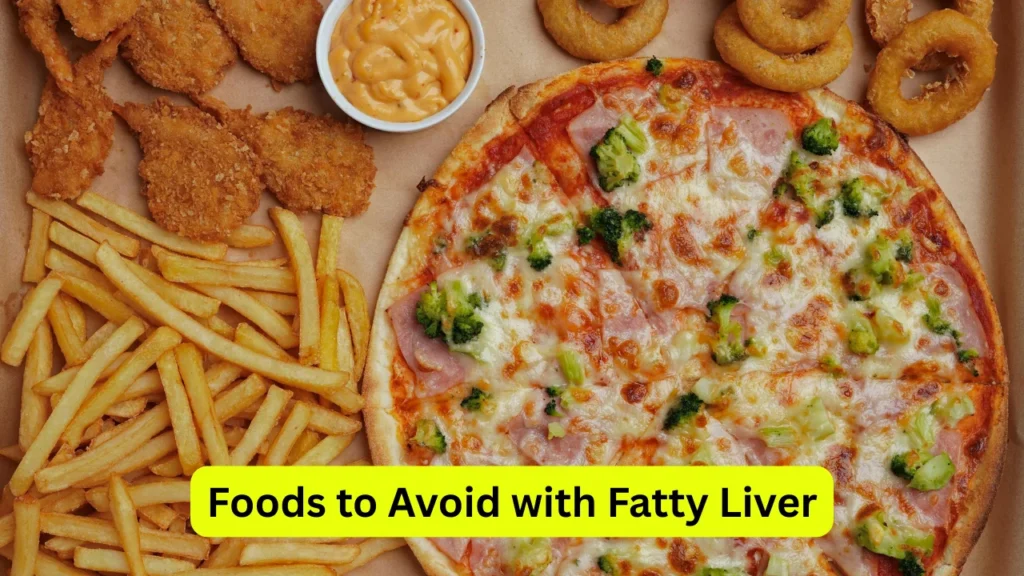
Processed food and fried snacks
Fast food, deep-fried snacks, and processed meats add fat and salt. They overload the liver and worsen inflammation.
Sugar and soft drinks
Sodas, sweets, cakes, and pastries spike blood sugar. They promote fat buildup and should be eliminated.
Alcohol consumption
Alcohol is the main cause of alcoholic fatty liver. Even small amounts can worsen the condition, especially in advanced grades.
High-fat dairy
Cream, butter, cheese, and ice cream should be limited. Choose low-fat or plant-based alternatives instead.
Refined grains
White bread, pasta, and packaged cereals raise blood sugar. Replace them with whole grains to maintain a healthy fatty liver diet plan chart.
Sample Fatty Liver Diet Plan
Here is a fatty liver diet plan for weight loss that also supports liver health.
| Time of Day | Meal Plan Example |
|---|---|
| Morning | Warm water with lemon or apple cider vinegar |
| Breakfast | Oats with berries and nuts |
| Mid-Morning | Green tea with an apple |
| Lunch | Brown rice, grilled chicken, spinach salad |
| Snack | Black coffee with roasted chickpeas |
| Dinner | Grilled fish, steamed broccoli, vegetable soup |
| Before Bed | Chamomile tea |
Fatty Liver Diet Recipes
Breakfast recipes
Oats with flax seeds, vegetable omelet, and fruit salad are easy morning meals. Fatty liver breakfast recipes avoid fried items and sugar.
Lunch recipes
Try grilled chicken with quinoa or lentil curry with brown rice. Add fresh salad on the side for fiber and vitamins.
Dinner recipes
Soups made from broccoli, carrots, and beans are filling. Grilled salmon or tuna with olive oil dressing is another good choice.
Snack ideas
Roasted nuts, vegetable sticks, and low-fat yogurt are healthy options. They keep you satisfied without stressing your liver.
Drinks and smoothies
Blend spinach, cucumber, and green apple for a refreshing liver-friendly juice. Avoid packaged juices loaded with sugar.
Treatment and Lifestyle Changes for Fatty Liver
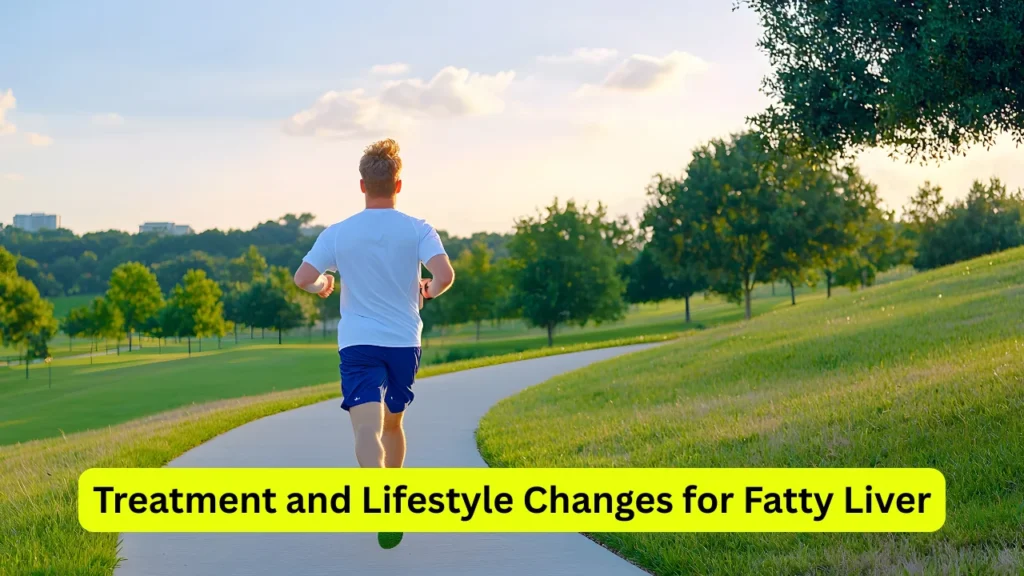
Medical treatment
Doctors may suggest fatty liver treatment with vitamin E or other supplements. There is no single fatty liver best medicine, but lifestyle changes remain the first step.
Natural remedies
Fatty liver home remedy ideas include green tea, turmeric milk, lemon water, and apple cider vinegar. These support digestion and metabolism.
Exercise routine
Daily walking, yoga, and strength training burn fat. A fatty liver exercise and diet routine is the fastest way to reverse early-stage fatty liver.
Weight management
If you are overweight, gradual weight loss helps. Rapid loss may worsen liver stress. A safe goal is 1–2 pounds per week.
Reversal of fatty liver
With dedication, you can achieve fatty liver reversal success stories of complete recovery. Following the right food plan makes this possible.
Comparison of Fatty Liver Grades
| Fatty Liver Grade | Symptoms and Features | Diet and Lifestyle Focus |
|---|---|---|
| Grade 1 | Mild fat buildup, no major symptoms | Weight control, healthy diet |
| Grade 2 | Moderate fat, some inflammation | Strict diet, exercise, no alcohol |
| Grade 3 | Severe fat, fibrosis risk | Medical care, controlled nutrition |
Nutritional Guidelines for Fatty Liver
| Nutrient | Recommended Intake | Examples |
|---|---|---|
| Protein | Moderate to high | Chicken, fish, beans |
| Fiber | High | Oats, fruits, vegetables |
| Fats | Low saturated fat | Olive oil, nuts |
| Sugar | Minimal | Natural fruit sugars only |
| Fluids | 8–10 glasses daily | Water, herbal teas |
FAQs
Can fatty liver be reversed with diet
Yes, early stages of fatty liver can be reversed with the right diet and lifestyle changes.
What are the best fruits for fatty liver
Apples, berries, oranges, papaya, and watermelon are some of the best fruits for fatty liver.
Is coffee good for fatty liver
Yes, black coffee without sugar may protect liver cells and reduce inflammation.
Can fatty liver patients eat eggs
Yes, eggs are safe when boiled or poached but should not be consumed in excess.
What is the fastest treatment for fatty liver
The fastest treatment includes weight loss, regular exercise, and a proper fatty liver diet plan.
Summary
A fatty liver diet is not about strict restriction but about smart food choices. By eating fiber-rich vegetables, fruits, lean proteins, and whole grains, you give your liver the chance to heal. Avoid alcohol, fried foods, and sugary drinks to prevent further damage. Pair your diet with regular exercise, healthy sleep, and stress control. Whether you are in grade 1 or grade 2, making these changes today will protect your liver for years ahead.
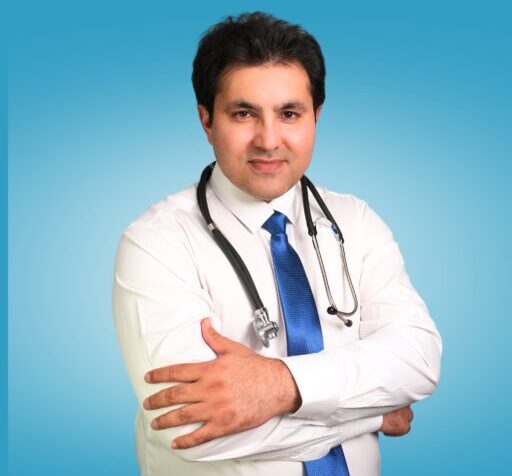
Dr. Max is a dedicated medical professional with extensive experience in health and wellness. His approach blends clinical expertise with the latest research, offering practical insights to help individuals lead healthier, more balanced lives.
